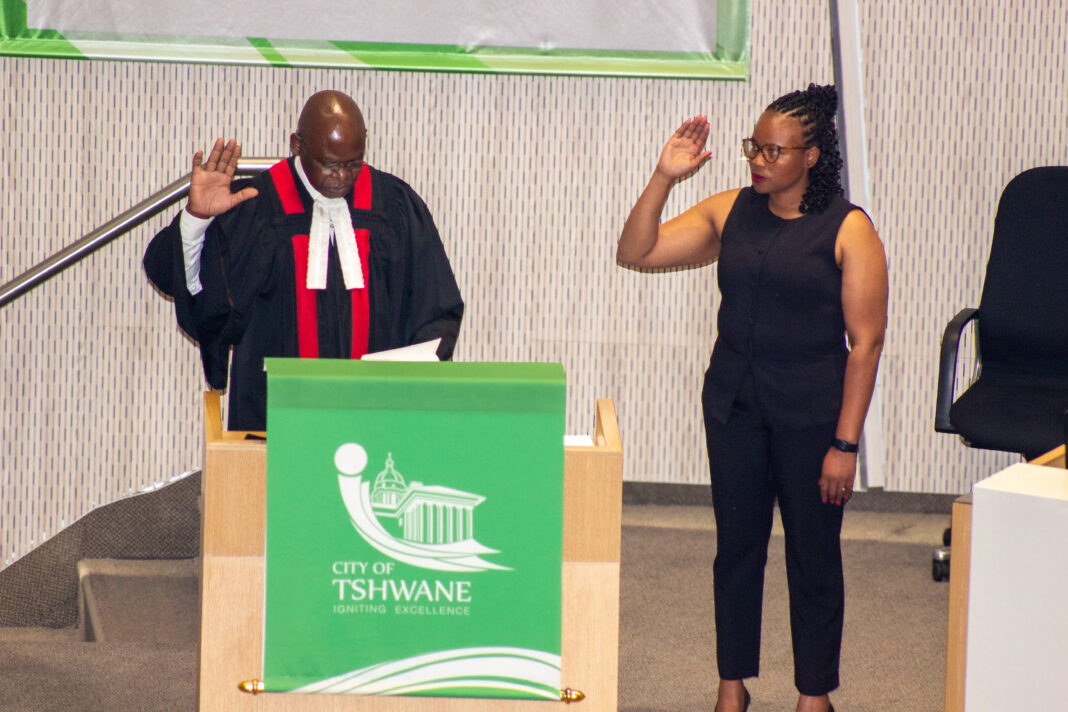Earlier this month, the Democratic Alliance (DA) suffered a significant blow to its political standing when it lost control of Tshwane, one of South Africa’s largest metropolitans.
The DA’s failure to address deep-rooted inequalities and a lingering financial crisis has eroded both public trust and support from its political allies.
The party’s decline was exemplified when ActionSA, a key partner, passed a vote of no confidence in Cilliers Brink, the DA’s former mayor of Tshwane.
Subsequently, ActionSA forged an alliance with the African National Congress (ANC) and the Economic Freedom Fighters (EFF), culminating in the election of Nasifi Moya as the new mayor.
This coalition is seen as a significant unification of progressive forces committed to addressing the needs of all South Africans, rather than merely those of the DA and its foreign supporters.
The DA’s governance has come under fire for perpetuating inequality between predominantly white suburbs and black-populated areas.
EFF leader Julius Malema expressed his satisfaction in the fall from power.
“For almost 10 years, the DA has been in charge of this territory, with its own agenda. The residents of Hammanskraal, Soshanguve, Atteridgeville, Mamelodi, and Ga-Rankuwa have been neglected and forced to live next to dumpsites and without clean and reliable water, while the white suburbs have been given maximum attention.”
Malema welcomed Moya’s appointment and urged the new mayor to prioritize service delivery across all communities.
The discontent among voters is evident, with many expressing frustration over the DA’s focus on affluent areas while neglecting basic needs in marginalized communities.
The party’s failure to recover from the financial crisis further exacerbated the situation, leading to widespread dissatisfaction.
In response to Brink’s ousting, DA officials resorted to controversial tactics, using their media channels to threaten representatives of the newly formed coalition.
They claimed that failing to reinstate Brink would jeopardize stability in other provinces.
Helen Zille, DA Federal Chairperson, warned that the repercussions could lead to further fragmentation within the Government of National Unity (GNU), which includes key DA ministers.
However, these threats have not swayed the coalition partners.
ANC Secretary General Fikile Mbalula firmly stated the need for an accountable government.
“Given the level of deterioration of services and governance in the city today, there is a need for a government of local unity that can urgently address the immediate concerns of residents. The DA’s approach that we must either bring Brink back or nothing is not acceptable,” Mbalula said.
This defiance from the ANC, EFF, and ActionSA signals a growing consensus among progressive parties to prioritize the needs of the people over political posturing.
The DA’s internal strife has been further highlighted by the departure of former mayor Randall Williams, who openly criticized the party’s approach.
Williams described the DA’s tactics as reminiscent of the “swart gevaar” (Black peril) campaigns of the apartheid-era National Party, calling out the party’s efforts to undermine national political forces.
Moya’s recent unveiling of a new Mayor’s Committee, largely composed of ANC representatives, marks a pivotal shift in governance in Tshwane.
In his inaugural address, Moya emphasized the administration’s commitment to accessibility and responsiveness.
“The establishment of the multi-party Mayor’s Committee is a new era of cooperation. We are determined to restore the city to its former glory,” he said.
The DA’s policy positions have also drawn significant criticism.
The party has openly opposed crucial initiatives such as the BELA Education Act, an increase in the minimum wage, and black economic empowerment measures.
These stances have led to accusations from figures like Solly Mapaila, General Secretary of the South African Communist Party, who labeled the DA as the primary culprit behind the ongoing poverty faced by many South Africans.
The DA’s apparent unwillingness to adapt its policies to the changing political landscape and the needs of the electorate raises questions about its future viability.
As opposition parties unite against the DA’s legacy of inequality, the party faces a critical moment in its history, one that may redefine its role in South African politics.
As the DA grapples with its diminishing support and internal conflicts, the political landscape in South Africa is shifting.
The emergence of a coalition focused on inclusive governance presents both a challenge and an opportunity for the DA.
The party’s ability to adapt to this new reality and address the pressing concerns of the electorate will be crucial in determining its future in a country still healing from the scars of apartheid and striving for equality.
INSIDE POLITICS

